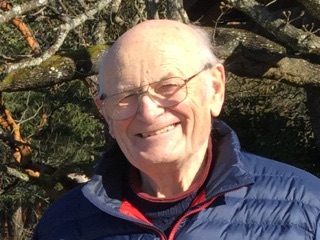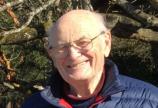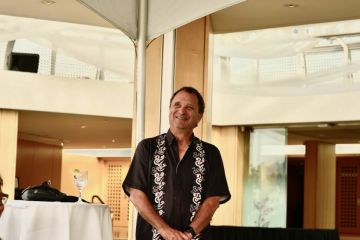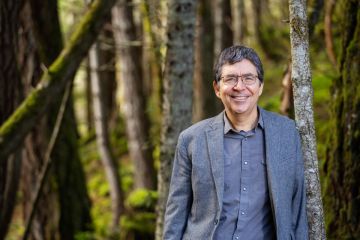In memoriam: John Money
- Simon Devereaux
John Money, Professor Emeritus of History at UVic, died on July 26, 2019 at the age of 80. John was “a historian’s historian” in all the best senses of that overused phrase. His work constantly challenged us to stretch the bounds of engrained analytical categories and discursive conventions. He was also a generous and richly allusive reviewer of the work of others.
John was born in February 1939 in Coventry. His Cambridge PhD was supervised by J.H. Plumb, a legendary historian of 18th-century England whose doctoral students invariably went on to stellar careers. Equally important in shaping John’s formidable mind, however, was one of the most remarkable married couples in English academe. G.R. Elton, another famous star in the Cambridge firmament, had been John’s undergraduate tutor at Clare College and remained a powerful force in his doctoral studies, instilling in him a lasting appreciation for the intricacies of Tudor history. John was also greatly inspired by the work of Sheila Lambert (Lady Elton), who single-handedly revolutionized the study of parliament and legislation in 18th-century England. In 1967, the same year that he defended his thesis, John began his lifelong career in Victoria.
John’s work on Birmingham established him as one of the pioneers of urban and regional history in 18th-century England, a field hitherto dominated by the high politics of the court and parliament in London. His first article, published in The Historical Journal in 1971, has been recognized as one of the 50 most influential articles published during the first half-century of that distinguished journal. That same year, John also produced the very first article published in Midland History, one of three English regional history journals which have now become major forces in the area. The book which emerged from all of this, Experience and Identity: Birmingham and the West Midlands, 1760-1800 (Manchester/McGill-Queen’s UP, 1977), remains a foundational study of the culture, politics and regional influence of what would ultimately become England’s “second city”. At first blush, the adjective “provincial” evokes a sense of the backward and bucolic. In John’s work, provincial England came into its own as a world of vital cultural centres to rival the metropole in sophistication and long-term influence.
Ever attuned to shifting historiographic currents, in the 1980s John began to explore the detail and nuance of two particularly famous aspects of Birmingham culture: one—science—largely a force for modernity and change; the other—religion—far more mixed in its substance and implications. John never tired of exploring these complexities, both in articles of formidable substance and in long conversations with colleagues and students. Many of the deep paradoxes of the age that so fascinated John were embodied in the life of John Cannon (1684-1743)—excise officer, schoolmaster and tireless bibliophile—to whom much of the remainder of John’s career was devoted. John’s two-volume edition of Cannon’s richly detailed diaries, The Chronicles of John Cannon (Oxford UP/British Academy, 2010), is a monumental scholarly achievement.
Somehow John also found the time and energy to be a devoted servant to other communities. At UVic, he was chair of the Department of History (1975-9), then acting dean of the Faculty of Arts and Sciences (1980-81) during an age when the deanship was rotated amongst what are now three wholly separate faculties. His two decades as a member of the University Senate, including four years as its elected vice-chair during the mid-1990s, is a record almost unmatched and unlikely to be surpassed. As with the scholar, so with the administrator. John’s contributions to discussion were the stuff of legend: complex, wide-ranging, yet always perfectly parsed. Few scribes were able fully to capture their breadth and depth. Fortunately, John could always be relied upon to correct the record for posterity.
Beyond the university, John was a tireless patron of Victoria’s music community, as well as a devoted husband, father and grandfather. Long into retirement, he continued bicycling the five kilometres to campus and sharing his wisdom and enthusiasms with colleagues and students. John continued to be not only an active scholar but a generous mentor and engaged member of the department. His passing is an irreparable loss: his memory will be cherished.
—Submitted by Simon Devereaux

Photos
In this story
Keywords: in memoriam, history
People: John Money
Publication: The Ring



